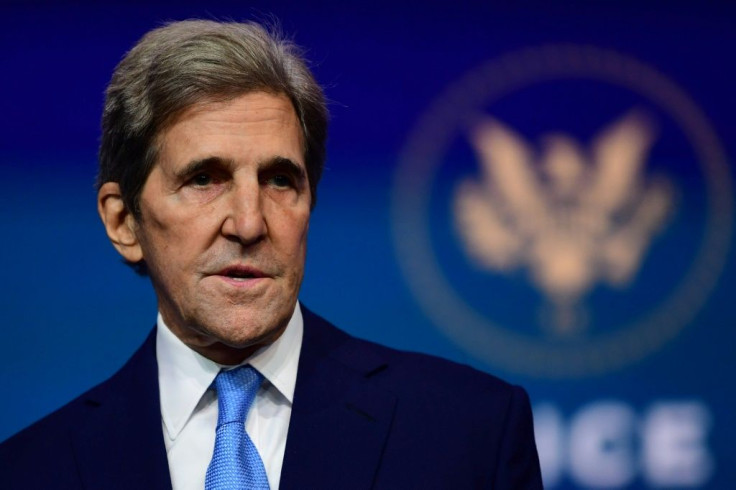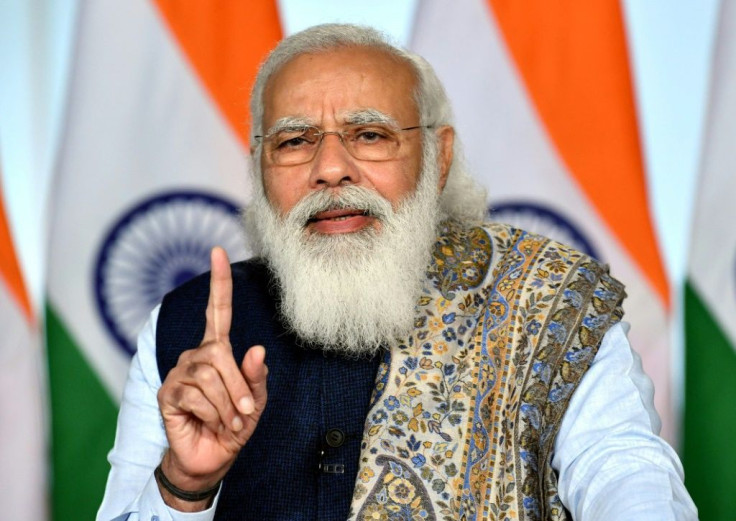Xi Warns Davos Forum Against 'New Cold War'
Chinese President Xi Jinping was on Monday slated to open an all-virtual World Economic Forum, with his country still appearing on track to emerge stronger from the coronavirus pandemic that continues to wreak havoc elsewhere.
Monday's schedule reflects the global economic picture, with Xi headlining as European policymakers -- including European Central Bank chief Christine Lagarde and French and German economy ministers Bruno Le Maire and Peter Altmaier -- discuss "restoring economic growth".
US President Joe Biden will be absent from the week-long online gathering as he tackles urgent and daunting challenges at home.
The January 2020 WEF, which took place in its usual Swiss Alpine resort of Davos, saw the global elite just starting to worry about a pandemic that had surfaced in China a month earlier.

A year on, the coronavirus is leaving a mounting death toll, upending economies and depriving millions of people of work.
And initial optimism about a swift, smooth vaccine rollout ending the pandemic has ebbed in the face of distribution hiccups and new virus variants.
But China and other Asian countries are making a strong comeback in 2021 from the virus that hit them first.

In virtual format because of the pandemic, this week's event is titled: "A Crucial Year to Rebuild Trust".
The big names from Europe will be German Chancellor Angela Merkel, French President Emmanuel Macron and European Commission President Ursula von der Leyen, who heads the European Union executive.
Biden will not appear at the virtual Davos, which has never been a fixture on the White House calendar -- even if the new administration has pledged to revive a multilateral foreign policy after four years of Donald Trump's "America First" approach.
Trump stopped in at Davos twice, with the real estate billionaire enjoying mixing with the global business elite.
Biden is nevertheless having appear John Kerry, the special climate envoy who will be welcomed after the new Democratic president brought Washington back into the Paris climate accord, as well as his top advisor on Covid-19, Anthony Fauci.

Showing up from Asia are China's and South Korea's presidents as well as the prime ministers of India and Japan.
Following the first virtual session, Davos will move in May to Singapore, far from the luxury Swiss ski resort where it has taken place since it was launched in 1971, the brainchild of German professor Klaus Schwab.
The stated reason for the change is health and safety, as the city-state has recorded just 29 Covid-19 deaths.
And a virtual forum is not particularly attractive for the world's well-heeled movers and shakers, who value huddles behind closed doors in fancy hotels over meetings in formal settings.
But the move also reflects economic reality, as French insurance-credit group Euler Hermes noted in a study this month that the "world's economic centre of gravity" has been moving towards Asia since 2002.
Recording growth of 2.3 percent last year while other major economies slumped, China is now on course to equal the size of the US economy in 2030, two years earlier than analysts predicted before the pandemic.
"The Covid-19 crisis could accelerate the shifting global balance towards Asia," Euler Hermes said.
Meanwhile, a UN report at the weekend showed that last year China beat out the United States as the top destination for foreign investments for the first time.
In a column published in October, Schwab said 2021 could be a positive and historic year, 75 years after the original "Year Zero" following the devastation of World War II.
"We once again have a chance to rebuild," he said in the commentary for the Project Syndicate magazine website, calling for rethinking capitalism in the light of a pandemic that has worsened inequality.
He said "Covid-19 has delivered the final blow" to the post-war model where free markets and limited government produced prosperity and progress that now is "no longer sustainable, environmentally or socially".
In a report timed to coincide with the start of the forum, anti-poverty group Oxfam said Monday that inequality is rising in almost every country at the same time, a first since records began.
"It could take more than a decade for the world's poorest to recover," Oxfam said in the study titled "The Inequality Virus".
© Copyright AFP {{Year}}. All rights reserved.



















